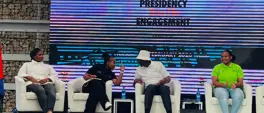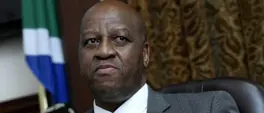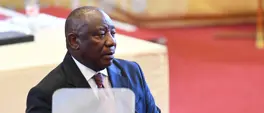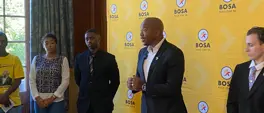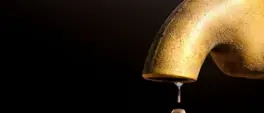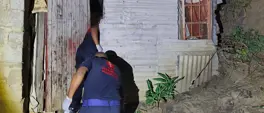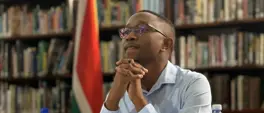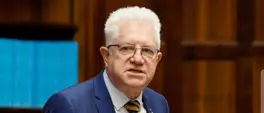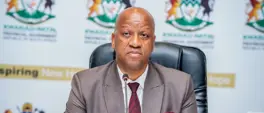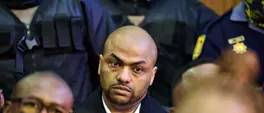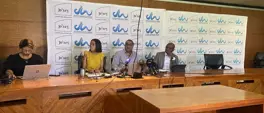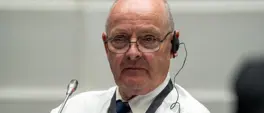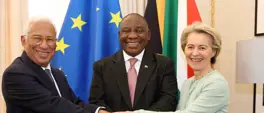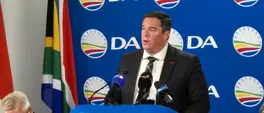JAMIL F. KHAN | Imagining a better world requires letting go of the world we are in
Jamil F. Khan
29 August 2025 | 9:58'Without full knowledge of our histories, and even the failures within those histories, we are doomed to repeat them, which has clearly come to pass.'
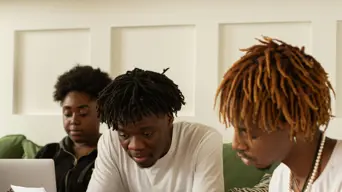
FILE: Young students working together. Pexels/Monstera Production
In the last 5 years, sociopolitical events have shaken up what we have come to know as our “normal”.
For many, the possibilities for these disruptive and devastating events witnessed and experienced were distant realities relegated to a dark past or dystopian future.
A global health pandemic in the form of COVID-19, a livestreamed genocide in Palestine, alongside those in Congo and Sudan, in a post-World War II world that has collectively agreed such atrocities could “never again” happen.
When the COVID-19 pandemic first happened and our social relations were rearranged by movement restrictions, the idea that we could never go back to how things were before dominated our discourse.
It was thought to be the portal to another way of living, of governing, of being human. Instead, what we have learnt is that, whatever the cost, the systems we have inherited through generations of colonial worldmaking refuse to loosen their grip on us.
When engaging the systems that define our social relations, we are often overwhelmed by the magnitude of their operations and daunted by the power they hold over us.
Their impacts are felt in the everyday as we move through society. Capitalism, as one example, is a system of social organisation that we have come to accept as a fact of life. It is probably the earliest experience of anyone’s life and we are socialised into it in the most benign ways, play being one.
JAMIL F. KHAN | Belonging, freedom and the right to be
JAMIL F. KHAN | How power, stigma and indifference can turn ordinary people into perpetrators
Most of us would remember some of our earliest forms of play involving games where we emulated shopkeepers or cashiers, fully aware that without money, goods could not be provided.
The entire point of the game, from which satisfaction was derived, was the accumulation of money and the power to deny someone goods, if they did not have the required amount of money, shrouded in the cuteness of child’s play, of course.
On one level, this taught us how to participate in a world that we would one day have to enter. On another level, it taught us to accept the cruelty of a system that places conditions on the ability to survive and thrive.
It taught us that without certain capacities or resources, some people deserved to be denied participation in the world, down to the very fundamental human need for food, if they cannot pay for it.
This is an idea we, as a society, have accepted as fair and logical. It is simply “the way things are”. The irony of this model, being adapted as a form of play which should encourage and develop imagination, is that it inserts our current reality into our imaginations, thereby stunting our ability to imagine something different.
Author, Ursula K. Le Guin famously stated in 2014: “We live in capitalism. Its power seems inescapable; so did the divine right of kings. Power can be resisted and changed by human beings.”
Her point, as self-explanatory as it seems, was that the world and its rules have changed many times, through the will of people who refused to accept it as it was. That will, however, was inspired by an imagination that offered an alternative before it could be realised.
In this moment where our current realities seem so inescapable, we must invest in our imaginations. One of the most devastating effects of systems of domination on our collective consciousness, is how it has robbed us of the ability to imagine alternatives.
We remain burdened with the crushing responsibilities of survival, which is inevitably tied to (un)employment, and hence too exhausted to think beyond it. We have accepted that staying afloat with just enough to have somewhat livable lives is something to be grateful for.
To be grateful for surviving the systems that necessitate survival becomesa form of achievement that keeps us shackled to its demands.
There is so much for us to revisit in the unrealised ideals of our liberation struggles and to abandon the project of imagination constitutes a failure of its own.
JAMIL F. KHAN | How sexual misconduct is shielded by tradition in South Africa
Jamil F. Khan | Why critical thinking is a collective responsibility in an age of disinformation
Though it is true that the systems we have to participate in to survive are huge and their harmful outcomes, overwhelming where we can start is with our thoughts.
Before, or perhaps while, we try and act to redefine social systems, we must interrogate how much of their values we have internalised as truths about the world, and subsequently truths about ourselves.
Once we have confronted the values of domination that inform our need to discriminate and place human beings into hierarchies of worth, we can start the process of imagining a different way, which we can develop into different systems, with different values.
The speech of Ursula K. Le Guin, referenced above directs this job of imagination to writers, and says:
“I think hard times are coming, when we will be wanting the voices of writers who can see alternatives to how we live now, and can see through our fear-stricken society and its obsessive technologies, to other ways of being. And even imagine some real grounds for hope. We will need writers who can remember freedom: poets, visionaries—the realists of a larger reality.”
She certainly was right: hard times were coming, and they have arrived. While writers and thinkers are engaged with this work, I am hopeful that we may entice a larger collective of humans to join in the practice of remembering freedom.
Where we cannot remember, we must imagine, together. This imagination exists, in stories, in books, in theories that guide us towards worlds where much more than just survival is possible. It is “possibility” that has slowly been whittled away in our imaginations that only dare to think as far as the weekend for some reprieve from an endless loop of drudgery.
There is so much for us to revisit in the unrealised ideals of our liberation struggles and to abandon the project of imagination constitutes a failure of its own. Without full knowledge of our histories, and even the failures within those histories, we are doomed to repeat them, which has clearly come to pass.
Imagining a better world means letting go of the world we are in.
Imagining a future starts with undoing the values of this present, to truly create valueson which everyone can not only survive, but thrive.
Jamil F. Khan is an award-winning author, doctoral critical diversity scholar, and research fellow at the Johannesburg Institute for Advanced Study.
Get the whole picture 💡
Take a look at the topic timeline for all related articles.
